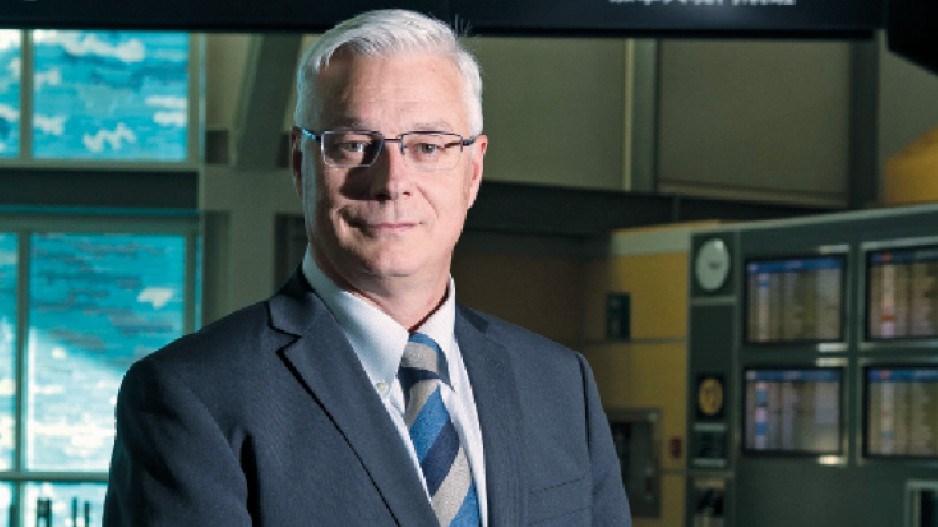The long awaited transit-without-visa program that Vancouver Airport Authority (VAA) executives have lobbied hard for in the past few years is close to becoming a reality, the authority’s CEO told a Vancouver Board of Trade audience October 22.
Given aggressive competition from airports in Calgary and Seattle, federal government approval for the program could not come soon enough for VAA CEO Craig Richmond.
The transit-without-visa initiative would make it possible for Asian travelers, for example, to land in Vancouver, wait in a lounge area with shops and services and then board a separate flight to Central America or South America – all without having to get a Canadian visa or to go through Canadian customs.
“Full transit without visa is very close to becoming a reality,” Richmond said in his speech. “With a little luck, we’ll be able to announce this program in a month or so.”
Currently many Asian workers in the mining sector travel to South America via the Middle East because they are able to travel visa-free, Richmond explained to BIV last year.
He envisions the “purpose-built” transfer area as including the same west coast colour palette, art and architectural details found elsewhere in at the Vancouver International Airport (YVR).
Getting approval for the initiative is key to expanding passenger traffic through YVR in the face of big investments and infrastructure upgrades in both Calgary and Seattle.
Calgary International Airport (YYC) for example, is amid a $2 billion airport expansion that includes about $1 billion in upgrades to terminal space and $1 billion in upgrades to runways.
YYC breezed past Montreal Pierre Elliott Trudeau International Airport (YUL) to become Canada’s third busiest airport, with 14.3 million passengers in 2013.
YVR, with a record 17,971,883 passengers in 2013, is Canada’s second busiest airport after Toronto Pearson International Airport (YYZ).
Richmond estimated that YVR’s passenger count will jump to a new record of about 19.2 million passengers in this year.
“The real [competitor] we’re focused on is Seattle,” Richmond said. “That’s because Delta is making Seattle its hub to Asia.”
Seattle-Tacoma International Airport, with more than 34.7 million passengers in 2013, has historically been primarily a domestic hub for U.S. travel. Bellingham International Airport (BLI) is also a concern because it is close and because of the way it is government-subsidized, can offer lower fares.
YVR has recently endured a bit of a musical chairs of new carriers.
The airport welcomed initial flights from Japan’s All Nippon Airways and Icelandair earlier this year but it said goodbye to Virgin Atlantic .
Richmond remains active in trying to convince new carriers to fly out of YVR.
His other efforts to stave off competition includes:
•a $280 million program to improve baggage systems and walkways;
•creating and releasing a free app later this year that will enable passengers to track exact luggage movements on their smartphones; and
•enhanced self-serve pre-clearance kiosks to speed passenger movement through customs.




